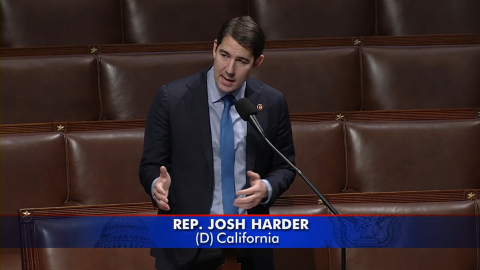BILL PASSED: Harder’s Bill Funding Local Fire Departments Passes House
Fire departments in San Joaquin County have waited over a year to be paid back after responding to fires on federal lands
The Fire Department Repayment Act addresses Recommendation 50 in the Wildland Fire Mitigation and Management Commission Report on fighting the wildfire crisis

Watch Rep. Josh Harder speak on the House Floor in support of the bill HERE
WASHINGTON – Today, the House of Representatives passed Rep. Josh Harder’s Fire Department Repayment Act to ensure local departments are fairly and quickly compensated for fighting fires on federal lands. Harder first introduced the bill after meeting with local fire chiefs, and hearing departments were waiting over a year for the federal funds. In part due to a shortage of wildland firefighters, local fire departments are often asked to respond to fires on federal lands which can be very costly between staff pay and equipment costs.
“As the wildfire crisis keeps getting longer and more dangerous, our local firefighters are being asked to do more and more dangerous work to keep our families safe,” said Rep.Harder. “When fires break out on federal land, local firefighters answer the call, whether or not they’re waiting on reimbursement from the last fire they put out. The federal government isn’t reimbursing fire departments for their services quickly enough, and it’s unacceptable for the government to skip out on the bill. This legislation forces the federal government to do the right thing and get our fire departments paid ASAP.”
This continues Rep. Harder’s work to support firefighters and address the wildfire crisis.
Rep. Harder’s Fire Department Repayment Act ensures that the agreements local fire departments enter with the federal government are completed more transparently and in a timely manner, helping give fire departments clarity about when and how much they will be reimbursed for wildfire costs. Specifically, the bill:
- Establishes standard operating procedures for fire suppression costs agreements;
- Reviews and modifies fire suppression costs agreements as necessary;
- Ensures the fire suppression costs agreements align with cooperative fire protection agreements; and
- Expedites reviews of standard operating procedures.